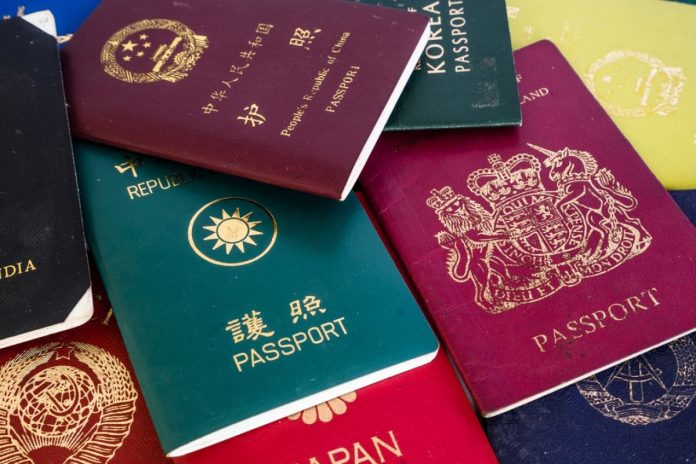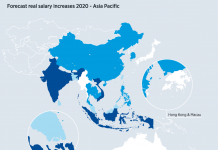As we enter the final quarter of 2019, Japan and Singapore retain a firm hold on first place on the Henley Passport Index, each with a visa-free/visa-on-arrival score of 190 out of a maximum 227. The index, which is based on exclusive data from the International Air Transport Association (IATA), used to be dominated by European nations or the US. However, since 2018, this has shifted dramatically with Asian nations now firmly established as world leaders in both global economic and mobility activity.
With visa-free/visa-on-arrival scores of 188, Finland, Germany, and South Korea remain in 2nd place, while Denmark, Italy, and Luxembourg are in 3rd place, with citizens of those countries now able to access 187 destinations worldwide without requiring a visa in advance. With a score of 184, the UK and the US remain in joint 6th place – the lowest position either country has held since 2010 and a significant drop from their 1st-place ranking in 2014.
While the top 10 positions have remained relatively stable since July, there have been more dramatic shifts further down the ranking. The UAE for example has made huge shifts, moving up five places over the last three months to the 15th position and being able to access 172 destinations without a prior visa.
Dr. Christian H. Kaelin, Chairman of Henley & Partners and the creator of the passport index concept, says: “Our ongoing research has shown that when we talk about ’passport power‘, we are discussing more than simply the destinations a holder can travel to without acquiring a visa in advance. Often, there is a strong correlation between visa freedom and other benefits such as business and investment freedom, independence of the judiciary, fiscal health, and property rights.”
Using historic data from the Henley Passport Index and the Index of Economic Freedom, political science researchers Uğur Altundal and Ömer Zarpli of Syracuse University and the University of Pittsburgh, respectively, found a strongly positive connection between visa freedom and a variety of indicators of economic freedom, including foreign direct investment inflows, property rights, tax burden, and investment freedom.
Altundal and Zarpli observed that more often than not, countries with higher visa scores tend to also rank higher in economic freedom, especially with regards to financial, investment, and business freedom. One especially striking example of this positive correlation is Singapore, which ranks highest in nearly all economic indicators and holds the top spot on the Henley Passport Index.
As they have done throughout the index’s history, countries offering investment migration programs have performed strongly. Moving up from the 16th-place position it held last quarter, Cyprus for instance, now holds 14th place, with Cypriot citizens able to access 173 destinations around the world without a visa. Malta retains its strong 7th-place position with a visa-free/visa-on-arrival score of 183, while Antigua and Barbuda has risen to 28th place with a score of 149 after gaining access to Russia.
Commenting on these results, Dr. Juerg Steffen, CEO of Henley & Partners, says: “In terms of the connections between visa freedom and indicators of economic freedom, countries with investment migration programs are among the best examples. Malta, for instance, has one of the strongest passports in the world and is performing exceedingly well in terms of fiscal health. The country expects to post its fourth fiscal surplus in as many years in 2019, making it one of the most financially dynamic countries in the EU. It is also the fastest growing nation in the EU, with an unemployment rate of just 3.8 per cent. These statistics speak for themselves, as does the growing interest in the investment migration industry from investors seeking global mobility and sovereign states looking to strengthen and diversify their economies.”






















